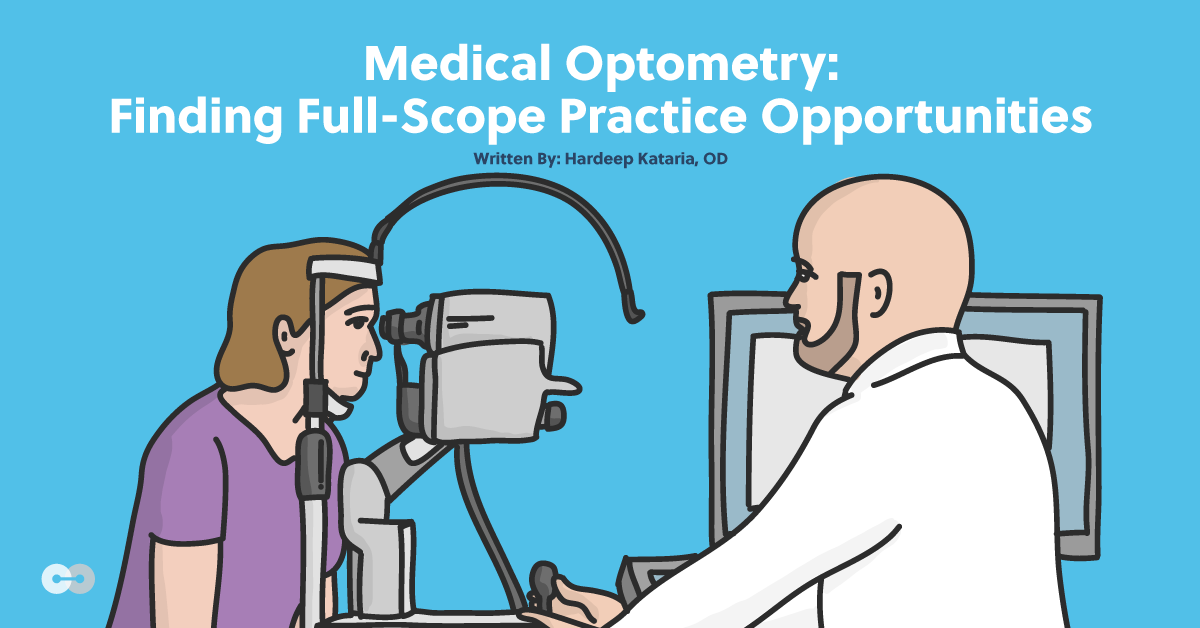Speaking of medications—check out our optometry clinical cheat sheets!
How do you go about finding a medical optometrist position?
- Consider doing a residency in your particular area of interest (ocular disease, specialty contact lenses, pediatrics/vision therapy). You will build exemplary skills and gain exposure to complex cases under supervision. A residency is also very attractive to an ophthalmology group looking to have you dive right into patient care. This is not required and there are many opportunities where you can learn on-the-job.
- Talk to your preceptors in medical settings that you enjoyed during your clinical rotations or your residency. Ask them for recommendations in the area, i.e. practices you might reach out to and enquire if they are looking for a medical optometrist. Your preceptors may even introduce you to some community doctors who are looking for your skill set.
- Search your schools’ and nearby schools’ classifieds for job postings. When you apply for a position, always send a cover letter outlining your goals for practicing medical optometry and follow up with a phone call.
- Get involved in your local optometric society and start networking.
- Attend annual conferences to boost your knowledge in areas of optometry that interest you and network, network, network.
- If you are unsure that a medical model is right for you, there is no rush to decide! You might accept some “fill-in” positions at medical model practices before you sign a contract.
Looking for a medical optometry position? Check out our optometry job board!
If you are starting in an existing practice, use your resources
- Enquire which advanced diagnostic technology the practice is already using. This will give you information on the level of care provided. If there is technology you do not know how to use, stay calm! You can always learn.
- Ask questions of your optometry and ophthalmology colleagues. Ask to sit in on their interesting cases. Observe ophthalmology in surgery if possible. Discuss their management strategies for certain conditions like corneal ulcers or filamentary keratitis. Do not be afraid to ask questions in any capacity, whether it is concerning patient management or billing a medical exam.
- How many times have you heard a preceptor say, “look it up!” If you are searching for answers, motivate yourself to do research. Look for journal articles to keep up with current practice trends.
- Network with community optometrists. Get to know who is in your area and which mode of practice they are in. There are many opportunities to co-manage with your optometric colleagues and learn from each other.
How to implement medical optometry into your existing practice
- Medical optometry is often best implemented with advanced technology. For example, glaucoma is managed using Standard Automated Perimetry and OCT. If you do not have access to advanced diagnostic testing, don’t panic. Use your existing resources optimally by informing your patients that you are available for medical eye care such as red eyes and diabetic examinations. Identify the need for medical management based on your patient population and evaluate which diagnostics would be most beneficial. Start small and add more technology as your medical practice grows.
- Insurance reimbursement will undoubtedly be factored into your decision to introduce medical management. Evaluate which insurance plans are most prevalent in your area and contact them for reimbursement rates.
